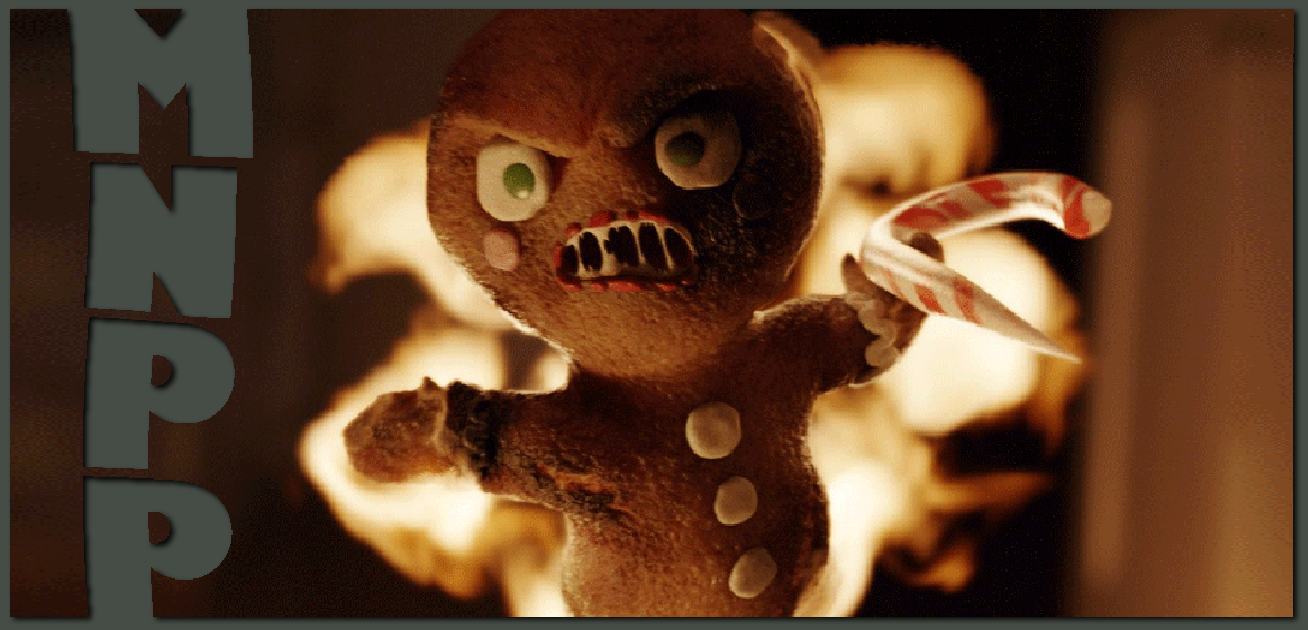.
In some ways Moonrise Kingdom seems to be Wes Anderson's reply to his critics that he's gone too far up his own ass with his immediately recognizable (some would say "smothering") quirks of stylization - and his reply is, "Oh dear friends, I have far more ass to go up." That's meant as a compliment - I love it up Wes Anderson's ass, and I hope to spend many many more hours up there.
Okay let's start this review again. It's just Moonrise Kingdom turns the Wes-Anderson-ness up to 11, and it took about thirty seconds into it for a grin to spread wicked far across my face that didn't let up. Like the twee-est game of Doom you ever did see, Anderson's camera moves through the passageways and rooms of Walt and Laura Bishop (Bill Murray and Frances McDormand)'s house from left to right or swiveling around in a circle - you very nearly feel like a giant staring through the windows of a giant dollhouse... something I can't imagine wasn't spoken aloud to the set designer as exactly the point.
But Wes colors in his coloring book movies with so much sadness and specificity - any of his characters loom as large, as instantly iconographic, as do Tarantino's. Only instead of Quentin's sharp-edged anime figurines here we get to play with knitted poppets that'd fit right in alongside Mr. Fox and his family. And Wes knows we never play all nice with our action figures - the sweetness is never not dark, turning darker. These are stories of real loneliness and depression, and that sometimes break in the clouds that's love. That one small stretch of sand, more like rock, that's where the storm breaks, the waters churn up and overwhelm, and everything thrums with meaning and color and rhythm and life, and most importantly how we remember it when we are done.
Wes' movies are like memories - the music, the fashion, the photo-frames around the edge - all sharp with specifics, while simultaneously taken right up out of time. They spread out myth-like from the teensiest of spaces, and make themselves a home. They map themselves, fluent in cartography you know, out across our own remembrances - this here is Young Love, tied up in a bow.
.









































1 comment:
I have a grin on my face too, but the movie was forgettable and disappointing for me. I would still give it a B+, but the problem for me is there are so many characters and not a lot of them sketched detail enough and don't have a lot of emotional depth to them. Yes, the details add a lot to the characters, but I think they don't tell us the inner of the characters as much. I feel like I don't even know the girl at all. On the other hand, you've got great actors like Willis and Norton fleshing out these characters by giving great performances so you can feel their loneliness. The funny thing is their characters are not burdened by too much details, but somehow they are more direct and emotional. That's just my opinion (apparently I'm in the minority here), but there are a lot of positives in this one (e.g. GREAT use of music), probably my third favorite Anderson movie. Maybe because the whole movie should have some "normal" people so I could sympathize with the lonely people (which I think is 99.9%).
By the way, Fassbinder's Ali: Fear Eats the Soul is much better than I realized (probably 10 years ago when I watched it). It's a bit too stylized for me, but reading more about it, they reveal the inner worlds of the characters much better than Anderson's. It's funny how when we are alienated by our society, we are more friendly towards others in the fringe of the society, but when we are finally accepted by our society, we distance ourselves with the outsiders.
Post a Comment